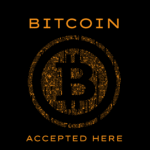
South Korea’s high monetary regulator is engaged on an in depth roadmap to assist the launch of digital asset spot exchange-traded funds.
In line with a June 19 report by Herald Economic system, the Monetary Providers Fee revealed the transfer throughout a coverage replace to the State Affairs Planning Committee.
The FSC plans to roll out its proposal within the second half of the yr. It’s going to consider the implications of introducing crypto-based spot ETFs, together with potential dangers to monetary stability, investor publicity, and the broader financial system.
The company additionally intends to construct the mandatory infrastructure for itemizing and managing such ETFs whereas making certain investor safeguards.
This coverage push aligns with marketing campaign pledges made by President Lee Jae-myung, who beforehand advocated for permitting the issuance and buying and selling of Bitcoin-based ETFs and related funding merchandise tied to digital property.
Stablecoin oversight and price construction below evaluate
Past the ETF rollout, the FSC is advancing the second part of its digital asset laws.
This subsequent step will deal with laws for asset listings, disclosures, enterprise practices, and crackdowns on unfair market exercise.
A key a part of the hassle will likely be aligning stablecoin guidelines with worldwide requirements whereas defending customers and enhancing market transparency.
Notably, South Korean authorities are significantly involved in regards to the rising affect of US dollar-denominated stablecoins within the home market. Lee Chang-yong, the governor of the Financial institution of Korea, just lately cautioned that won-pegged stablecoins might enhance demand for the US greenback, elevating macroeconomic dangers.
In the meantime, the FSC reportedly plans to launch a market-wide evaluate of transaction charges charged by native crypto exchanges.
The evaluate will initially goal South Korea’s largest exchanges, together with Upbit, Bithumb, and Coinone.
Key areas of curiosity embrace how these platforms’ charges are structured, whether or not they disclose this info transparently, and the extent of voluntary price reductions.
South Korea’s newest regulatory steps replicate its intent to steadiness innovation with consumer safety because it reshapes its crypto market coverage









